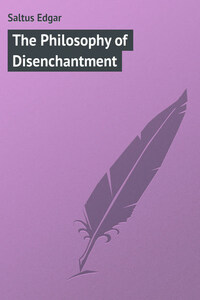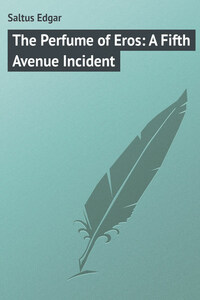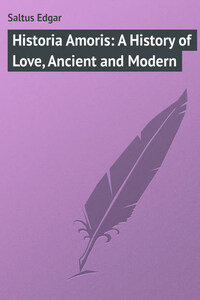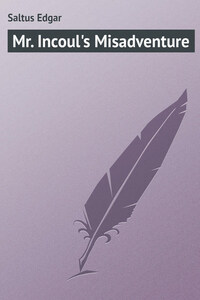CHAPTER I
THE GENESIS OF DISENCHANTMENT
The trite and commonplace question of contentment and dissatisfaction is a topic which is not only of every-day interest, but one which in recent years has so claimed the attention of thinkers, that they have broadly divided mankind into those who accept life off-hand, as a more or less pleasing possession, and those who resolutely look the gift in the mouth and say it is not worth the having.
Viewed simply as systems of thought, the first of these two divisions is evidently contemporaneous with humanity, while the second will be found to be of purely modern origin; for from the earliest times man, admittedly and with but few exceptions, has been ever accustomed to regard this world as the best one possible, and through nearly every creed and sect he has considered happiness somewhat in the light of an inviolable birthright.
Within the last half century, however, there has come into being a new school, which, in denying the possibility of any happiness, holds as first principle that the world is a theatre of misery in which, were the choice accorded, it would be preferable not to be born at all.
In stating that this view of life is of distinctly modern origin, it should be understood that it is so only in the systematic form which it has recently assumed, for individual expressions of discontent have been handed down from remote ages, and any one who cared to rummage through the dust-bins of literature would find material enough to compile a dictionary of pessimistic quotation.
For these pages but little rummaging will be attempted, but as the proper presentation of the subject demands a brief account of the ideas and opinions in which it was cradled, a momentary examination of general literature will not, it is believed, cause any after-reproach of time misspent.
To begin, then, with Greece, whose literature has precedence over all others, it will be remembered that in former days, when the citizen expended the greater part of his activity for the common good, the poets in like manner sang of national topics, the gods, the heroes, and the charms of love. There was, therefore, little opportunity for the expression of purely personal ideas, and the whole background of the poetry of antiquity is in consequence brilliant with optimistic effect. Nevertheless, here and there, a few complaints crop out from time to time. Homer, for instance, says that man is the unhappiest wight that ever breathed or strutted, and describes his ephemeral existence in a wail of gloomy hexameters.
Then, too, there is the touching Orphean distich, which runs: —
"From thy smile, O Jove, sprang the gods,
But man was born of thy sorrow."
Pindar in one of his graceful odes compared men to the shadows of a dream, while the familiar quotation, "Whom the gods love die young," comes to us straight from Menander.
With the peculiar melancholy of genius, that in those favored days seems more a presentiment than the expression of a general conception, Sophocles, in his last tragedy, says that not to be born at all is the greatest of all possible benefits, but inasmuch as man has appeared on earth, the very best thing he can do is to hurry back where he came from.
In spite, too, of the general tendency of thought, sentiments not dissimilar are to be found in Æschylus and Euripides, while something of this instinctive pessimism was expanded into a quaint and national custom by the Thracians, who, according to Herodotus, met birth with lamentations, but greeted death with salvos and welcoming festivals.
With but few exceptions the early philosophers considered death not as a misfortune, but as an advantage. Empedocles taught that the sojourn on earth was one of vexatious torment, an opinion in which he was firmly supported by Heraclitus, and even Plato, whose general drift of thought was grandly optimistic, said in the "Apology," "If death is the withdrawal of every sensation, if it is like a sleep which no dream disturbs, what an incomparable blessing it must be! for let any one select a night passed in undisturbed and entire rest, and compare it with the other nights and days that have filled his existence, and then from his conscience let him answer how many nights and days he has known which have been sweeter and more agreeable than that. For my part I am sure that not the ordinary individual alone, but even the great King of Persia would find such days and nights most easy to enumerate."
The doctrine of Epicurus held, in substance, that the moment it was no longer possible to delight the senses death became a benefit, and suicide a crowning act of wisdom. The teaching of the Socratic school and its offshoots amounted, in brief, to the idea that the only admissible aim of life was the pursuit and attainment of absolute knowledge. Absolute knowledge, however, being found unattainable, the logical culmination of their doctrine was delivered by Hegesias, in Alexandria, in the third century before the Christian era. This disciple of Socrates argued that as there was a limit to the knowable, and happiness was a pure illusion, a further prolongation of existence was useless. "Life seems pleasing only to the fool," he stated; "the wise regard it with indifference, and consider death just as acceptable." "Death," he added, "is as good as life; it is but a supreme renunciation in which man is freed from idle complaints and long deceptions. Life is full of pain, and the pangs of the flesh gnaw at the mind and rout its calm. In countless ways fate intercepts and thwarts our hopes. Contentment is not to be relied on, and even wisdom cannot preserve us from the treachery and insecurity of the perceptions. Since happiness, then, is intangible we should cease to pursue it, and take for our goal the absence of pain; this condition," he explained, "is best obtained in making ourselves indifferent to every object of desire and every cause of dislike, and above all to life itself. In any event," he concluded, "death is advantageous in this, it takes us not from blessings but from evil."














